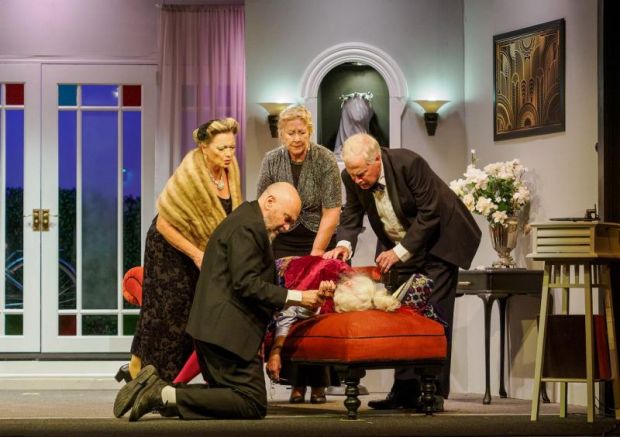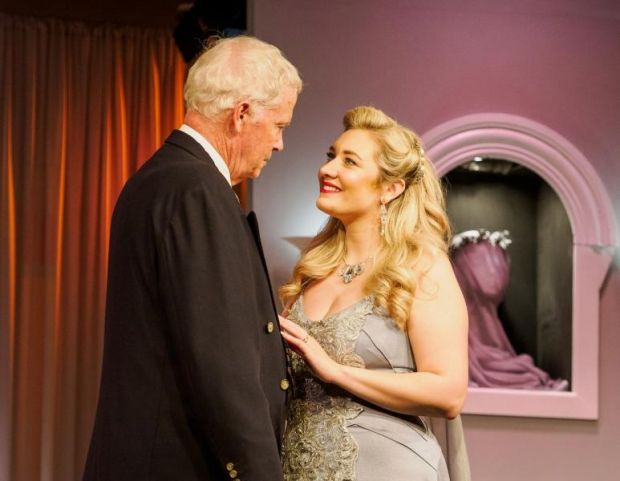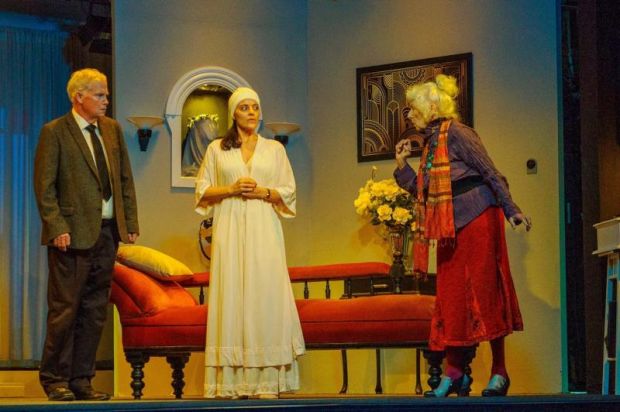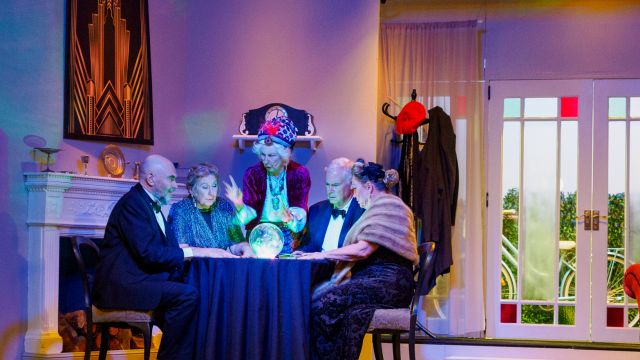Blithe Spirit
Noël Coward finished writing Blithe Spirit on 9th May 1941. It opened only a month later in Manchester, and his own production of the play opened in July 1942 and ran for 1,997 performances in theatres in the West End. It is fitting therefore that the Theatre on Chester presents this production almost 82 years after the maestro penned the last lines of this, one of his famous ‘social comedies’.
Today Coward’s works are regarded as ‘period pieces’, and director Cate Cunningham has stayed true to his time in her design and direction. Her set is a tribute to the Art Deco motifs that pervaded in Europe and Britain through the 1920s and 30s, and the costumes reflect the styles that were favoured by the British social elite during the 1940s. Her direction too, clings closely to the time, emphasising Coward’s clipped sentences and his almost satirical depiction of his own social milieu.
Blithe Spirit is what Coward himself described as “an improbable comedy in three acts”. He had apparently wanted to write a play about ghosts and the “blithe spirit” in the play is the ghost of Charles Condamine’s first wife, Elvira. She is conjured during a séance conducted by the clairvoyant Madame Arcati at the request of Condamine, a novelist, who thought the séance might give him ideas for a new book. Unfortunately it does much more than that! Elvira disrupts Condamine’s life, and that of his second wife Ruth, in scenes that become increasingly chaotic.

Over the years, the character of Madame Arcati has become the stage epitome of the “mad medium” and Christine Rule does the image proud in this production. Shedding colourful hats, scarves and jackets, she bursts into the Condamine’s home with carefully controlled flamboyant gestures, melodramatic expressions and a shrill Scottish accent, disrupting the ‘refined’ calm of the gathering and setting the scene for events that become, in her own words, “catastrophic”.
Rule brings comedic pace and energy to the production, as does Madeleine Dart as the spectral Elvira. Dart silently drifts around the set, watching at first, then becoming increasingly provocative. She goads Condamine, flirting seductively – and when he eventually explains her presence to Ruth, Elvira’s jealousy is nastily released.
Condamine is played by Christopher Clark, who shows Condamine’s increasing loss of self-assurance as he moves from arrogant control to confused uncertainty. Clark is an experienced, confident performer who finds both the cutting cynicism of Coward’s character and his frailty.

Penny Day is Ruth. Day establishes Ruth’s confident poise in the first scenes and shows how she tries desperately hard to sustain some equilibrium as her life is viciously, stylishly undermined by Elvira’s malice.
Dr and Mrs Bradman, guests at the séance, are stylishly portrayed by Bob Blunt and Kate Mannix, and Fabiola Pellegrino is Edith, the new maid who not only serves the Condamines, but is cleverly directed to carry out some small scene changes.
Cunningham has ensured the action moves in keeping with the changes effected by both Madame Arcati and Elvira. The staid, social tempo of the Condamine’s dinner party is disrupted by Arcati’s gaudy energy – and completely ramped up as Elvira wreaks her havoc.

Ghost stories often require special effects – and this play is no exception. Elvira’s “appearances” are heralded by quivering lights (Mike Brew, Wal Moore and James Miller Argue) and eerie music (Charlotte Wiltshire). Other special effects came from the creative imagination of production manager John Wiltshire and were manipulated and manoeuvred by Wiltshire himself and his very adept stage crew.
Cate Cunningham has taken her cast back to Coward’s élite wartime London, complete with dry martinis, fur stoles, Art Deco and British aplomb. Her Blithe Spirit artfully invokes the tenor of the 1940s … as well as being entertaining theatre.
Carol Wimmer
Subscribe to our E-Newsletter, buy our latest print edition or find a Performing Arts book at Book Nook.

